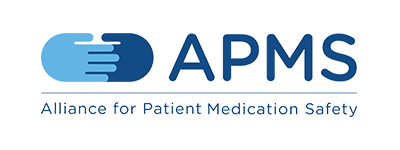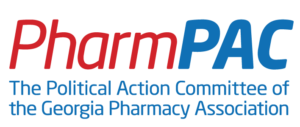2021 Legislative Update: Week 4
Week 4 (legislative days 9-12) of Georgia’s legislation session included GPhA engaging in substantive discussions on legislation already introduced as well as legislation expected to be introduced. While SB 46 (pharmacist vaccine expansion) has not yet been heard in committee, we anticipate that it will be heard in week 5.
Week 4 also saw the introduction of several pieces of legislation which GPhA will be monitoring and likely engaging in.
Finally, week 4 saw GPhA’s first virtual Day at the Dome event which was held via Zoom with students from Mercer and PCOM learning about the importance of engaging in the legislative process from Representatives Ron Stephens and David Knight, as well as GPhA President Wes Chapman. In addition, students were provided with an update on the history of pharmacist administration of vaccines via protocol agreements from GPhA past president Dr. Liza Chapman. A special thank you to all of them as well as Dr. Jonathon Hamrick for his efforts in coordinating and planning this event.
Legislation Introduced in Week 4
Representative Robichaux introduced several pieces of health care legislation in week 4, including HB 213 which looks to looks to provide full practice authority for APRNs, including the authority to order, prescribe, procure, administer, dispense, or furnish prescription drugs including controlled substances.
Also introduced by Representative Robichaux, this bill looks to require quality and payment reporting for health plans administered by the Department of Community Health. Reporting is to include data on the state health benefit plan, the plan for public school teachers, and Medicaid. This legislation also requires comprehensive dental and vision coverage for Medicaid.
This bill, introduced by Senator Kirkpatrick, creates the Ensuring Transparency in Prior Authorization Act. It is important to note at the outset that while this bill deals with certain issues in connection prior authorizations for prescription drugs it is broader than that, also dealing with prior authorization for medical procedures.
The bill applies to health insurers as well as PBMs and deals primarily with adverse determinations by utilization review entities on the grounds that a healthcare service is not medically necessary or is experimental or investigational and thus denied. It does not appear to include negative coverage determinations based on non-medical grounds.
Amongst other things, this bill requires:
- Utilization review entities to make prior authorization requirements and restrictions available to enrollees, providers, and the general public on a website.
- Utilization review entities to provide 60 days written notice of changes to prior authorization requirements and restrictions.
- Utilization review entities to provide statistics of rates of approval and denial on their website.
- Physicians advising or making decisions for utilization review committees meet certain requirements.
- Prior authorizations for urgent healthcare services be completed within 24 hours of receiving all information necessary to make the determination.
- Requires coverage for emergency services necessary to screen and stabilize a patient.
In addition, the bill provides that a prior authorization of a covered service shall be a guarantee of payment to the provider unless there is a billing error, fraud, or material misrepresentation.
Regarding prescription drugs in particular, this bill provides that a prior authorization given is good for a year, subject to certain exceptions, even if there are dosage changes.
Also, by January of 2022, pharmacy benefits prior authorization requests shall be accepted by payors through the National Council for Prescription Drug Program’s SCRIPT Standard ePA transactions, Version 2013101, in effect on the effective date of the law. It further provides that faxes, and other technology not directly integrated with a physician’s electronic health record or electronic prescribing system, shall not be considered a secure electronic transmission for purposes of prior authorizations.












